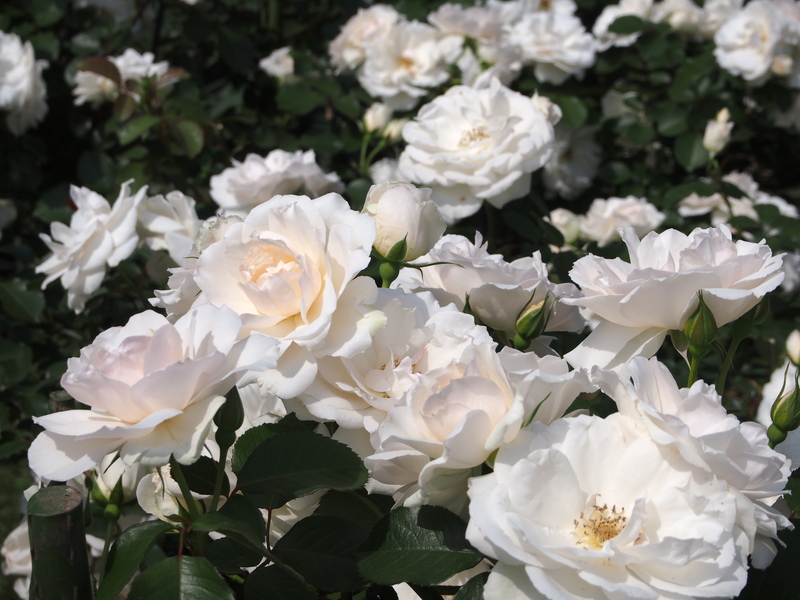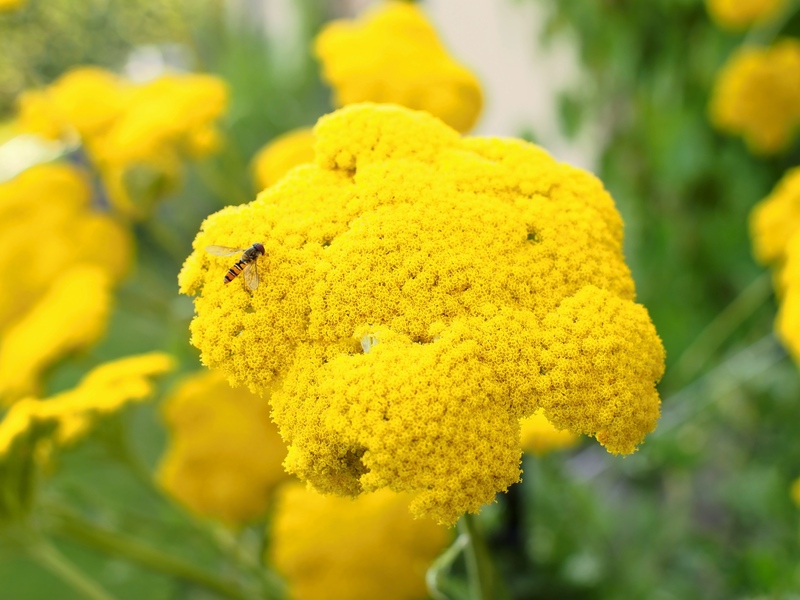3 Actionable Tips for Weed Control Success
Posted on 03/09/2025
3 Actionable Tips for Weed Control Success
Weeds are more than just an eyesore; they compete with your crops, garden plants, or lawn for vital nutrients, light, and water. Strategic weed control is essential for healthy landscapes and productive gardens. If you're tired of fighting a losing battle against crabgrass, dandelions, and other stubborn invaders, this guide is for you! Here, we share three actionable tips for weed control success that can transform your approach, so you spend less time pulling and more time enjoying your green space.

Why Is Effective Weed Control Important?
Before we explore our main strategies, let's understand why weed management is crucial. Weeds disrupt the natural balance of your garden or lawn by:
- Competing for water, sunlight, and nutrients, robbing your preferred plants of essential resources;
- Providing havens for pests and diseases;
- Lowering curb appeal and overall landscape health;
- Decreasing crop yield and quality in edible gardens;
- Increasing maintenance time and effort.
Tip 1: Adopt a Proactive Mulching Strategy
One of the most effective weed control tips for gardens, flower beds, and landscaped areas is mulching. A layer of mulch not only locks in soil moisture but also blocks sunlight, which many weed seeds need to sprout.
How to Use Mulch for Maximum Weed Suppression
Organic mulches such as bark, shredded leaves, straw, or grass clippings slowly break down, enriching your soil. Inorganic mulches (landscape fabric, decorative stones) offer long-lasting coverage but won't improve soil health.
- Prepare the Site Thoroughly: Remove all existing weeds before applying mulch. If necessary, lay down newspaper or cardboard underneath mulch to create an additional weed barrier.
- Apply Mulch Properly: Aim for a 2-4 inch thick layer. Thinner layers won't block weeds, but thicker layers may smother your plants' roots. Keep mulch a few inches away from stems and trunks to prevent rot.
- Choose the Right Material: For vegetable gardens or flower beds, use fine wood chips, compost, or straw. For paths or under shrubs, coarser bark or gravel works well.
Pro tip: Refresh mulch every spring, topping up as it decomposes or washes away.
How Mulching Enhances Weed Management
- *Blocks light,* starving weed seeds and seedlings
- *Regulates soil temperature* and moisture, reducing weed stress on desired plants
- *Adds organic matter* (if organic mulch), improving soil fertility
Mulch isn't just an easy way to prevent weeds--it creates a healthier, more attractive landscape with less ongoing maintenance.
Tip 2: Master the Art of Timely Weed Removal
Even the best barriers won't stop every single weed. The key to long-term weed control success is removing intruders quickly and efficiently. Timeliness is everything: Target weeds when they're most vulnerable and easiest to eliminate.
The Best Times for Pulling or Cutting Weeds
- After Rain or Watering: Soil is loose, making roots easier to extract. Aim for early morning or late evening if the weather is warm.
- Before They Set Seed: Tackling weeds before flowering or seeding prevents new generations. Persistent species like dandelion or crabgrass can be controlled effectively by removing their seed heads.
- While They're Young: Young weeds have shallow roots and are easier to manage. Make regular "scouting walks" through your property every week or two.
Hand-Pulling vs. Tools: What's Best?
- Hand-pulling: Ideal for isolated weeds, loose soil, or spots near prized plants where precision matters.
- Tools: Use hoes, weeders, or specialized pullers for larger patches or tap-rooted weeds (like dandelions or thistle). Garden knives or stirrup hoes work quickly and efficiently over larger areas.
*Bonus technique:* If you're managing lawn weeds, keep your mower blades sharp and mow high (3-4 inches where appropriate). Taller grass shades the soil, minimizing germination and crowding out invaders.
Benefits of Quick & Consistent Weed Removal
- Prevents seed dispersal and stops future outbreaks
- Reduces overall labor in the long run
- Reduces dependency on harsh herbicides
- Maintains the health and appearance of gardens, lawns, and landscapes
By staying vigilant and attacking weeds before they mature, you can make a dramatic difference in your yard's health and overall appearance.
Tip 3: Improve Soil and Plant Health for Natural Weed Resistance
The healthiest yards and gardens are naturally weed-resistant. When soil is fertile and your plants are thriving, weeds struggle to compete. That's why advanced weed control methods focus on promoting overall landscape vitality.
Strategies for Building a Weed-Suppressing Garden
- Test and Enrich Your Soil: Test soil for pH, nutrient levels, and texture. Add compost, organic matter, or appropriate amendments to create a healthy root zone--vigorously growing plants leave less room for weeds.
- Densely Plant Your Beds: Avoid wide gaps between plants. Use groundcovers, dense plantings, or interplanting to provide a living mulch and crowd out weed seedlings.
- Establish Healthy Turf: In lawns, overseed thin areas, use recommended grasses, and follow optimal mowing and irrigation practices. A thick, lush lawn is the best defense against weeds like crabgrass and dandelions.
How Healthy Soils & Plants Reduce Weed Problems
- *Dense root systems* block light and take up valuable resources, denying weeds their niche
- *Compost and organic matter* boost microbial activity, which breaks down weed seeds and supports robust growth
- *Proper watering* (deep, less often) encourages deep-rooted plants, which outpace shallow-rooted weeds
Remember: Healthy, crowded plantings are nature's own weed control mechanism! Select regionally appropriate species and use smart plant arrangements to reduce weed pressures automatically.
Additional Weed Management Strategies for Ultimate Success
While our main three tips--mulching, timely removal, and promoting healthy plants--are foundational, here are additional strategies many weed control experts recommend:
- Solarization: Cover heavily infested areas with clear plastic for 4-6 weeks in high summer to kill weed seeds and roots through heat (great for future plantings).
- Cultivation with Caution: Lightly hoeing soil disturbs weed seedlings but avoid deep or frequent tillage, which can bring up new seeds.
- Spot-Treat with Organic Herbicides: Only as a last resort; vinegar or clove oil sprays can target tough weeds organically, but be careful--they'll hurt garden plants, too.
- Edge Your Beds: Physical edging between beds and lawns can prevent grassy weeds from encroaching on flower or veggie gardens.
- Maintain Vigilance: The earlier you catch weeds, the less work you'll have and the more resilient your garden will become.

Common Weed Control Mistakes to Avoid
A successful weed management program means avoiding classic errors that allow weeds to gain a foothold. Watch out for:
- Letting weeds go to seed ("One year's seeding makes seven years' weeding!")
- Using mulch with weed seeds (like straw or hay that isn't weed-free)
- Neglecting soil health or leaving bare patches after pulling large weeds
- Spraying herbicides indiscriminately, damaging desired plants and pollinators
- Ignoring the importance of ongoing monitoring and maintenance
Conclusion: Achieve Weed Control Success This Season
Consistent, strategic weed control doesn't require endless labor or harsh chemicals. By combining smart mulching, timely weed removal, and actively supporting plant health, you can enjoy a lush, weed-suppressing landscape for years to come. Start with these three actionable weed management tips and make them a habit--soon, weeds will no longer dominate your garden chores.
For sustainable weed management solutions, remember: Prevention always beats cure, soil health fuels plant power, and vigilance makes all the difference. Use these strategies consistently and enjoy a thriving, beautiful outdoor space with minimal weed woes!
Ready to transform your weed control routine?
Share your favorite tips in the comments below--and don't forget to explore our site for more expert advice on weed control success and sustainable gardening techniques!
Latest Posts
Affordable and easy garden concepts for every home
Harnessing Nature: Taming Windy Conditions in Gardens
Simple Steps to Beautiful Orchid Blooms

